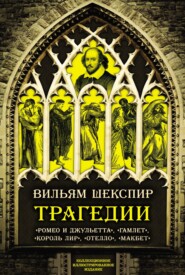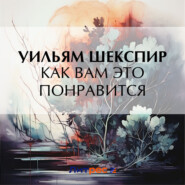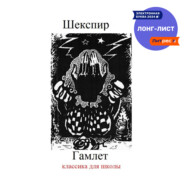По всем вопросам обращайтесь на: info@litportal.ru
(©) 2003-2024.
✖
The Rape of Lucrece
Настройки чтения
Размер шрифта
Высота строк
Поля
Such hazard now must doting Tarquin make,
Pawning his honour to obtain his lust;
And for himself himself he must forsake:
Then where is truth, if there be no self-trust?
When shall he think to find a stranger just,
When he himself himself confounds, betrays
To slanderous tongues and wretched hateful days?
Now stole upon the time the dead of night,
When heavy sleep had closed up mortal eyes:
No comfortable star did lend his light,
No noise but owls' and wolves' death-boding cries;
Now serves the season that they may surprise
The silly lambs; pure thoughts are dead and still,
While lust and murder wake to stain and kill.
And now this lustful lord leap'd from his bed,
Throwing his mantle rudely o'er his arm;
Is madly toss'd between desire and dread;
Th' one sweetly flatters, th' other feareth harm;
But honest Fear, bewitch'd with lust's foul charm,
Doth too too oft betake him to retire,
Beaten away by brain-sick rude Desire.
His falchion on a flint he softly smiteth,
That from the cold stone sparks of fire do fly;
Whereat a waxen torch forthwith he lighteth,
Which must be lode-star to his lustful eye;
And to the flame thus speaks advisedly:
'As from this cold flint I enforced this fire,
So Lucrece must I force to my desire.'
Here pale with fear he doth premeditate
The dangers of his loathsome enterprise,
And in his inward mind he doth debate
What following sorrow may on this arise;
Then looking scornfully, he doth despise
His naked armour of still-slaughter'd lust,
And justly thus controls his thoughts unjust:
'Fair torch, burn out thy light, and lend it not
To darken her whose light excelleth thine:
And die, unhallow'd thoughts, before you blot
With your uncleanness that which is divine!
Offer pure incense to so pure a shrine:
Let fair humanity abhor the deed
That spots and stains love's modest snow-white weed.
'O shame to knighthood and to shining arms!
O foul dishonour to my household's grave!
O impious act, including all foul harms!
A martial man to be soft fancy's slave!
True valour still a true respect should have;
Then my digression is so vile, so base,
That it will live engraven in my face.
'Yea, though I die, the scandal will survive,
And be an eye-sore in my golden coat;
Some loathsome dash the herald will contrive,
To cipher me how fondly I did dote;
That my posterity, sham'd with the note,
Shall curse my bones, and hold it for no sin
To wish that I their father had not been.
'What win I, if I gain the thing I seek?
A dream, a breath, a froth of fleeting joy:
Who buys a minute's mirth to wail a week?
Or sells eternity to get a toy?
For one sweet grape who will the vine destroy?
Or what fond beggar, but to touch the crown,
Would with the sceptre straight be strucken down?
'If Collatinus dream of my intent,
Will he not wake, and in a desperate rage
Post hither, this vile purpose to prevent?
This siege that hath engirt his marriage,
This blur to youth, this sorrow to the sage,
This dying virtue, this surviving shame,
Whose crime will bear an ever-during blame?
'O, what excuse can my invention make
When thou shalt charge me with so black a deed?
Will not my tongue be mute, my frail joints shake?
Mine eyes forego their light, my false heart bleed?
The guilt being great, the fear doth still exceed;
And extreme fear can neither fight nor fly,
But, coward-like, with trembling terror die.
'Had Collatinus kill'd my son or sire,
Or lain in ambush to betray my life,
Or were he not my dear friend, this desire
Might have excuse to work upon his wife;
As in revenge or quittal of such strife:
But as he is my kinsman, my dear friend,
The shame and fault finds no excuse nor end.
'Shameful it is; – ay, if the fact be known:
Hateful it is: – there is no hate in loving;
I'll beg her love; – but she is not her own;

















